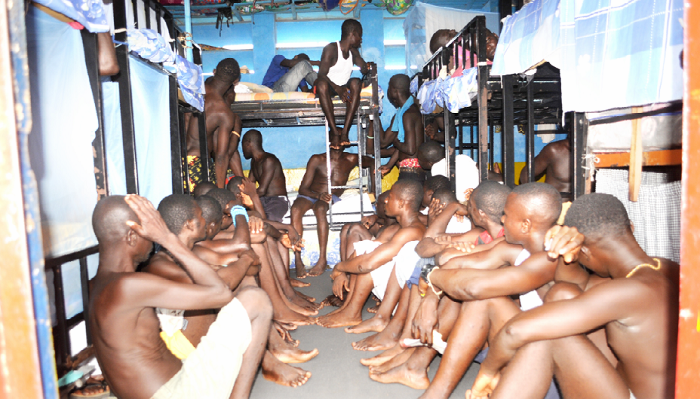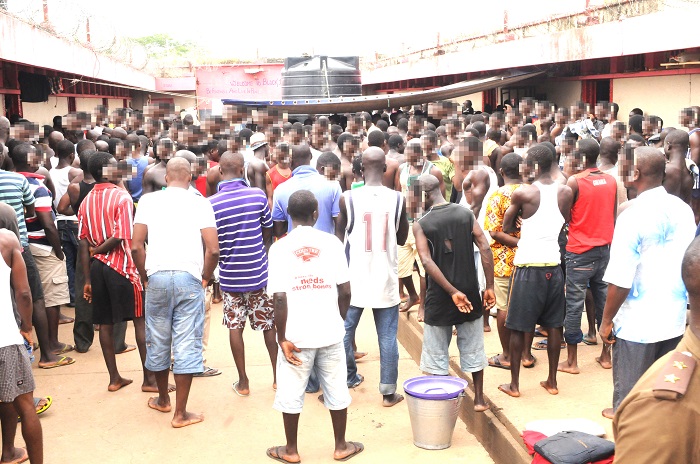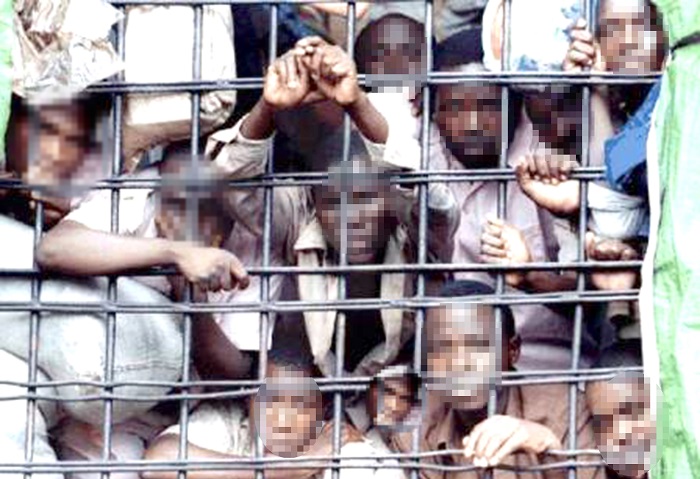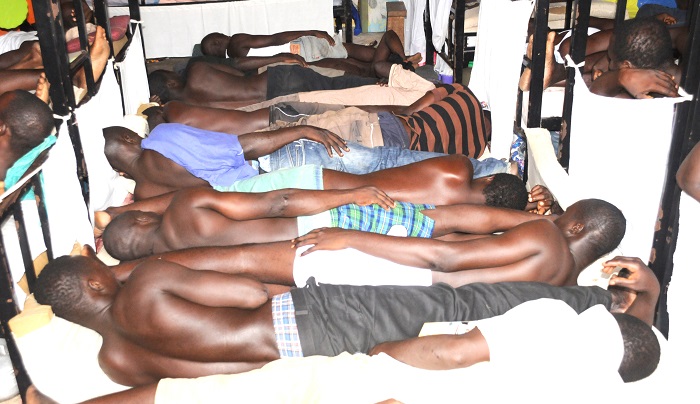
Why you should avoid prison; A look at the current state of Ghana's prison system
Prisons have been in existence since the Stone Age. Until the institutionalisation of the prison system in Ghana, our colonial masters in the Gold Coast era housed offenders in dungeons and cells built into their castles.
Advertisement
Currently, there are 43 prison establishments across the country. They are categorised as maximum security (Ankaful), medium security (Nsawam), central prisons, female prisons, local prisons, settlement camps and the contagious diseases prison.
As a matter of fact, prison is a place I wouldn’t wish for anyone, and the length that people go to avoid imprisonment is indicative of this fact.
Inmates’ overcrowding
The congestion in Ghanaian prisons leaves much to be desired. The Prisons Service is currently housing close to 15,000 inmates as opposed to the intended capacity of 9,000; a situation that accounts for the overcrowding in the various prisons.
Overcrowding affects the quality of life of prisoners and accounts for inhumane conditions in Ghana’s prisons. Notable among the challenges are the spread of communicable and airborne diseases among the densely packed inmates, poor ventilation and excessive workload for prison officers.
Poor quality meals
The feeding rate for every Ghanaian prisoner is GH¢1.80p each day, translating into 60 pesewas per meal per prisoner. Undoubtedly, this ration is woefully inadequate to provide quality meals for prison inmates.

Most of Ghana’s prisons are excessively congested
It can, therefore, be said that the quality of meals served prisoners is impoverished or below standard. Sometimes it is amazing that meals are even served.
Extreme deprivation
Most inmates experience a deep sense of rejection while in prison. Studies have shown that in the first few days, weeks and sometimes months of incarceration, relatives and friends of inmates’ troop in with goodwill and goodies. But these visits soon become rare and ultimately cease within a couple of weeks.
The rest of the inmate’s days of incarceration are served with very little support. Many prison inmates have been known to bemoan and grief over rejection by their loved ones and relatives.
The prison system is a closed, restricted community with its own peculiar set of regulations. Most gadgets and some clothing, among others, may not be permitted within the prison walls.
Adjusting to prison conditions and routine for the first few days and weeks is a herculean task for most inmates. One soon realises that he can neither enjoy his favourite meal nor take a bottle of beer.
Access to external communication (mobile phones) is usually non-existent, though an inmate may be allowed to place a phone call in cases of necessity under supervision.
Incarceration has the tendency to subdue one to adjust to a lifestyle that you are not used to and many have had to suffer a few withdrawal symptoms.
Impact on socio-economic development
Firstly, incarceration can render an inmate economically redundant for the period spent in prison.Furthermore, long prison sentences have the tendency of corrupting any previous skills learned.
For instance, a teacher who spends 30 years in prison may get rusty and out of sync with prevailing teaching methods, likewise other professionals. However, ex-convicts with entrepreneurial skills have proven to be more successful after being discharged from prison.
At a recent seminar in church, all the congregants answered ‘NO’ when asked if they would readily employ an ex-convict, and this hilariously included the pastor. Only one senior member was undecided. This scenario is a contributory factor to recidivism – the case of the repeated offender.

Overcrowding is a major challenge in our prisons
The last reason you should stay out of prison is that after 59 years of independence, society continues to treat our prisoners just as our prisons have been treated – Neglected.
Stigmatisation of ex-convicts
There is general stigmatisation and stereotyping of ex-offenders and the earlier case scenario of the church is a typical example. Society must realise that not all prisoners are criminals. Indeed, many later have been proven innocent or wrongly implicated in crimes they knew nothing of.
In fact, there are quite a number of cases where some inmates were convicted simply because they happened to be at the wrong place at the wrong time. And in most of these cases, there had been improper representation in court.
Society must again realise that in any case, the prison system makes provision for counselling and rehabilitation of offenders, and there are a good number of success stories to share.
As a nation, we haven’t paid much attention to our prisons. It is about time we created awareness of the deplorable state of Ghana’s prisons. Indeed it is a shared opinion that for a prison to have any prospect of serving as an effective deterrent, the facility must appear to be a harsh place to those who might end up there.
However, frantic efforts must be made to ensure that the prisoner is privileged to some basic standards of living, as applicable to human rights. Most of our prisons have seen no new infrastructure since their establishment.
Project ‘Efiase’
Luckily, with the launch of Project ‘Efiase’ which seeks to transform Ghanaian prisons into excellent centres of reformation and rehabilitation, the Prisons Service has seen recent developments. ‘Efiase’, which is the Akan word for prison, is an initiative of the Prisons Council.

Inmates sleep in unacceptable sleeping positions
Project ‘Efiase’ has a three-prone approach thus advocacy, fundraising to implement the 10-Year Plan of Ghana Prisons and to engage the Service in public-private partnership (PPP).
The Prison Council understands that “for prisons to be deterrent enough, prisoners shouldn’t be placed in luxury. Prisons shouldn’t provide better life for inmates than they would normally have on the outside”. (Fleisher, 2003)
We must note that individuals are sent to prison as punishment, not for punishment.
The writer is with the Education Unit of the Kumasi Central Prison



